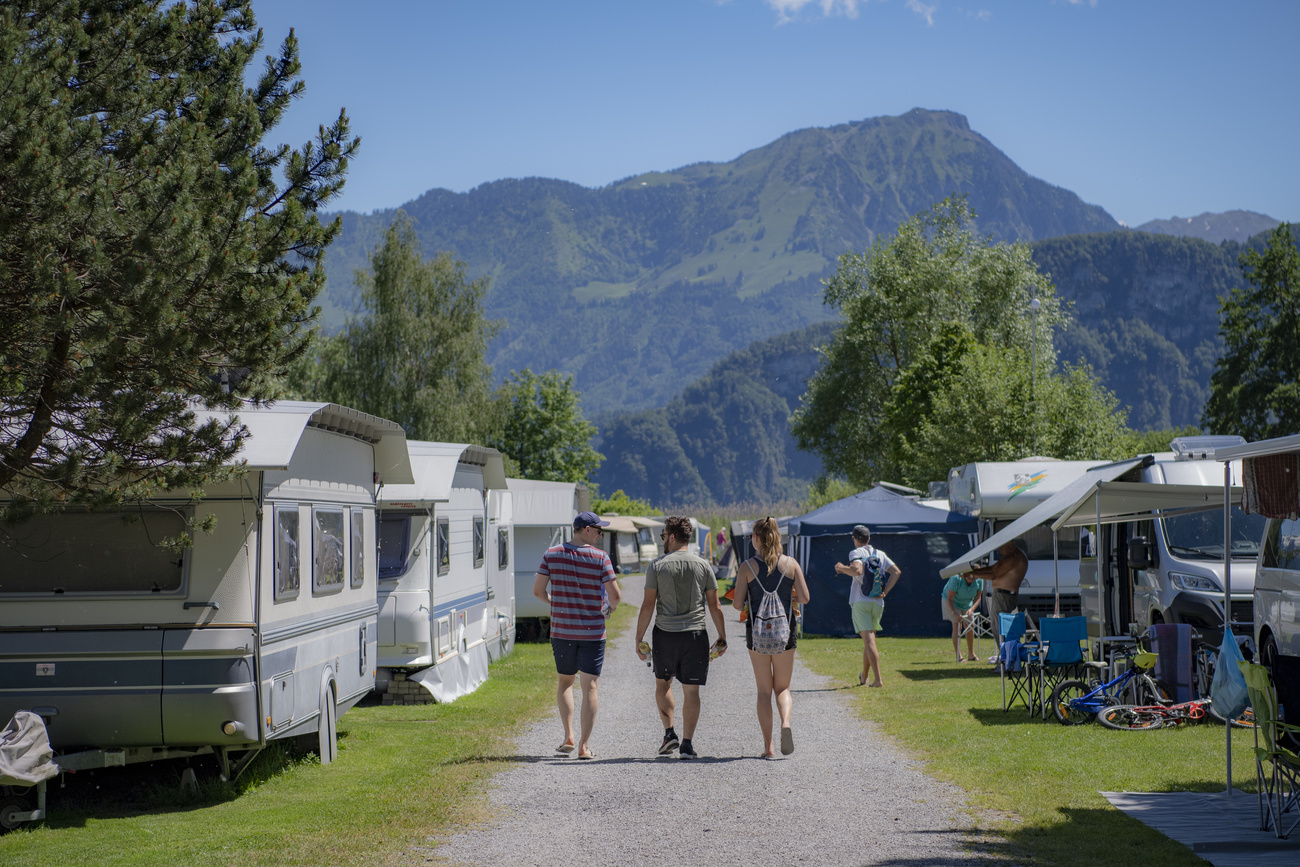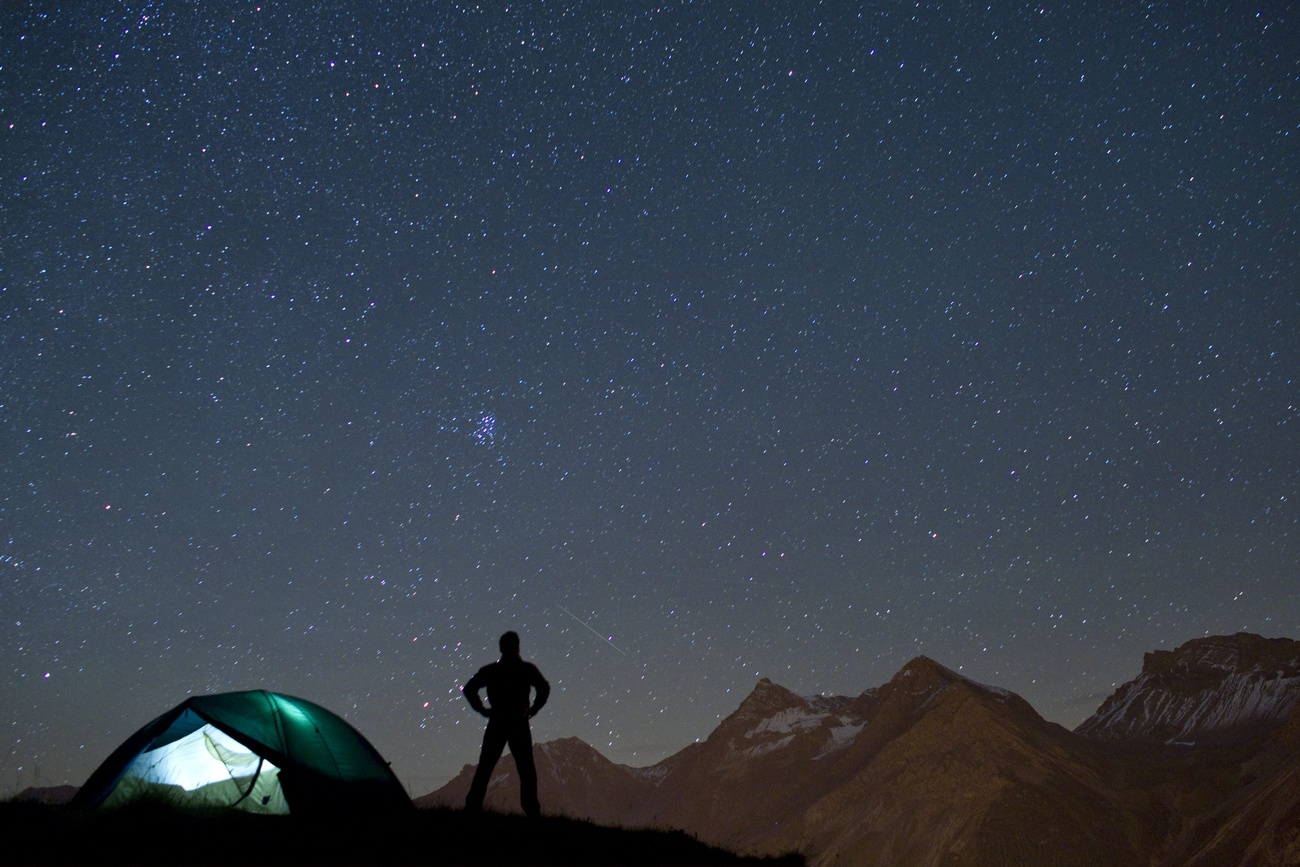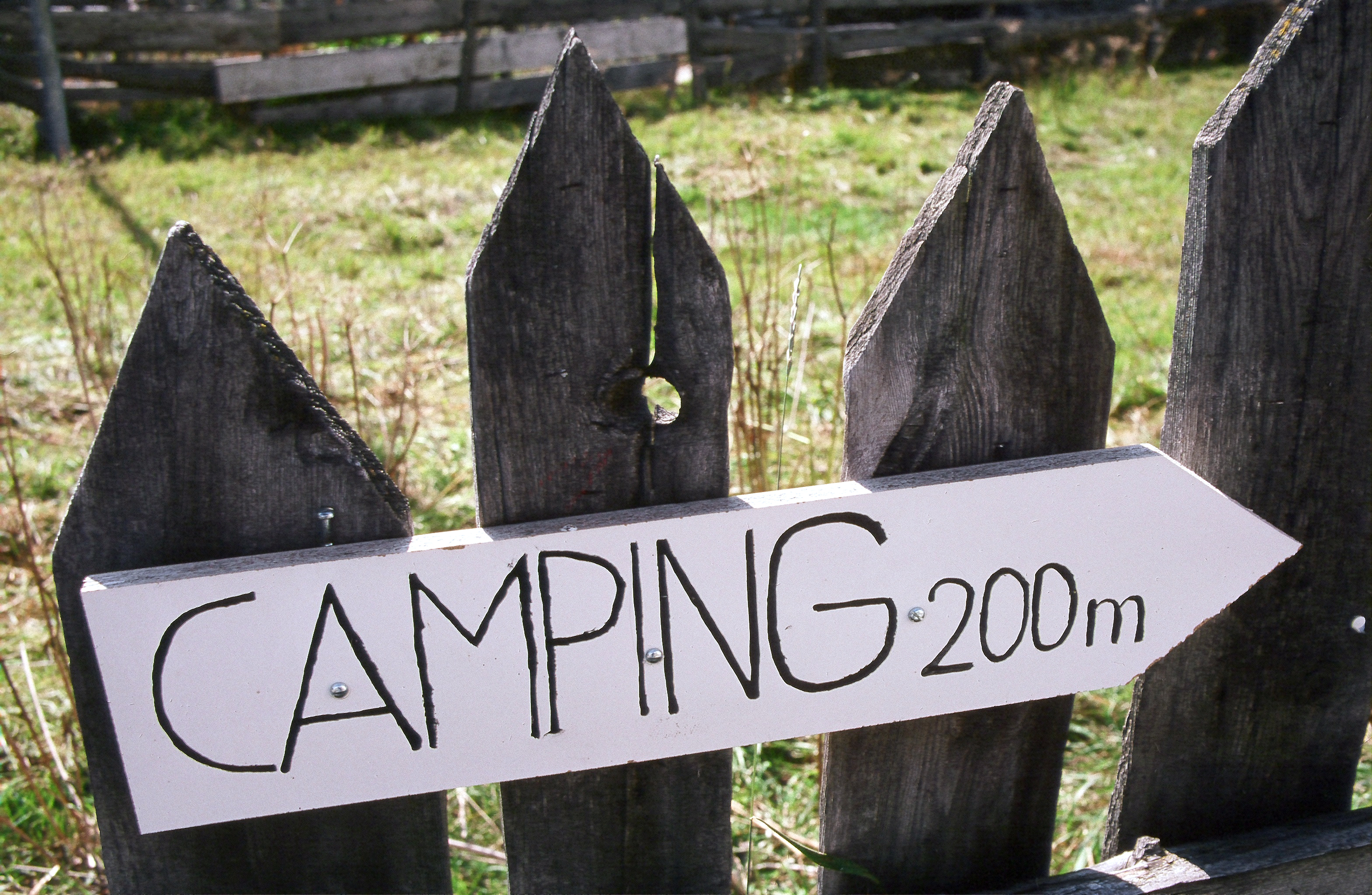Swiss discover a love of camping – but at what price?

Since the pandemic, visitor numbers to Swiss campsites have soared: last year Touring Club Suisse (TCS) recorded almost one million overnight stays – 60% more than before Covid. Can nature absorb all these outdoor enthusiasts?
“Motorhomes means freedom, and with the pandemic, people realised that they need more of it.” Jérôme, 51, spends every weekend in the great outdoors, with his motorhome and children. Like him, thousands of travellers now choose to camp rather than sleep in a hotel or rented flat. And while the return to nature exploded with the pandemic, the trend had already begun before.
“In the 1990s and 2000s there was this trend for all-inclusive holidays,” explains TCS spokesman Massimo Gonnella. “But after the 2008 financial crisis many people could no longer afford this type of holiday. So they came to the campsite, liked it and stayed.”
In 2023 the TCS campsites recorded their best year ever, with almost one million overnight stays. However, the number of pitches is falling. According to Gonnella, this is due to both demographic and ecological pressures.
Regulating unauthorised camping?
To reconnect with nature, some people prefer to avoid official structures. During the pandemic, the Jura Vaudois Nature Park was invaded by camper vans. The authorities in the various municipalities concerned took action. “It’s important for us not to ban camping,” explains Paolo Degiorgi, the park’s director. “This is a tourist region, but we need a controlled and organised welcome.”

More
Campers inspired by social media disrupt Swiss alpine wildlife
The parking area known as “Chez Colas” is one of ten sites where camping has been authorised. Facilities range from a simple dustbin to dry toilets.
As an alternative to wild camping, the NomadyExternal link website brings private owners and campers together. This German-speaking start-up was launched in 2019 and has been growing ever since. It now has 1,300 hosts in German-speaking Switzerland and 40 in French-speaking Switzerland. The hosts are often farmers who make their land available and sell their produce.
At Saubraz, Danaé Isely is entering her third season. Throughout the summer she welcomes campers on the outskirts of her farm. Two cyclists and their children sit in the middle of the permaculture vegetable garden. “It’s true, we feel that more and more people are camping and that there’s pressure on the land,” she says. “We’re a little less tolerant of campers than we used to be. Nomady is a good alternative.”
Campsites seek to reinvent themselves
The arrival of these new campers has brought with it new demands. Some are camping for the first time and have no equipment, while others are coming to telework. “We’re offering more and more rental structures such as small chalets or atypical accommodation,” Gonnella confirms.

More
Carry on camping
The Morges campsite has three vintage caravans and this year launched a major greening project, planting around 30 trees and marking out its pitches with areas of flowering vegetation.
“People don’t want to be right next to each other like in a cage,” Gonnella explains. “So we’re trying to reproduce these wilder areas.”
Translated from French by DeepL/ts

In compliance with the JTI standards
More: SWI swissinfo.ch certified by the Journalism Trust Initiative








You can find an overview of ongoing debates with our journalists here . Please join us!
If you want to start a conversation about a topic raised in this article or want to report factual errors, email us at english@swissinfo.ch.